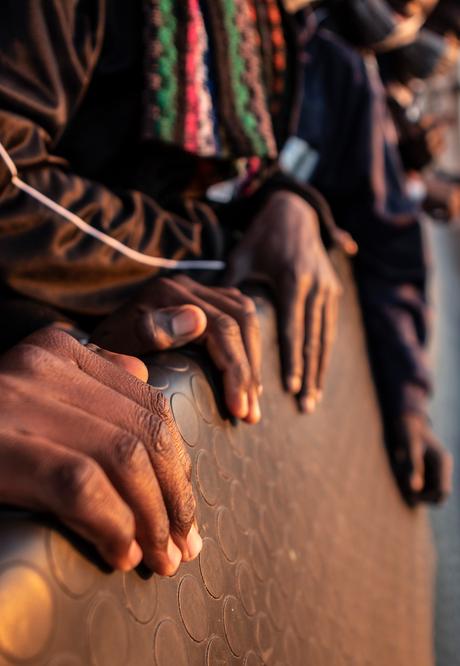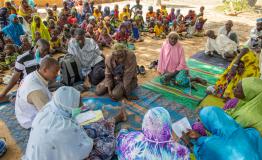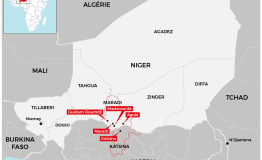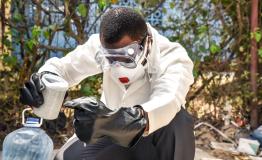

Niger
In the capital, Niamey, the city with the most cases, MSF built a treatment centre to care for patients in the first months of the pandemic. We also supported the COVID-19 call centre in Niamey and some health facilities in other major cities. From June, heavy rains fell, submerging the most impoverished districts of the capital and several parts of Maradi, Tahoua, and Tillabéri. In Niamey, we supplied drinking water and set up mobile clinics to assist people displaced by the floods. In addition, we distributed relief items and provided psychological support in the hardest-hit areas of the city.
In Diffa, Maradi, Magaria, and Tillabéri, our teams treated more patients with malaria than in 2019, mainly due to the shortage of antimalarial medicines and a lack of access to healthcare, both due to the COVID-19 crisis. The early onset of the rainy season also resulted in increased transmission of the disease.

681,200
681,2
291,600
291,6
55,300
55,3
41,700
41,7
From October to December, we supported a regional hospital in Niamey to improve care for children under the age of 15 by increasing its inpatient capacity, training staff and donating drugs. We also maintained our support to the Ministry of Public Health by boosting inpatient capacity for the treatment of acutely malnourished children in Madarounfa and Magaria. Our teams are developing preventive and community-based approaches to reduce the number of patients with complications from malnutrition; for example, by providing early treatment for malaria, acute respiratory infections and diarrhoea.

Humans of Assamaka
A young man fills a water bottle at a pump installed by MSF in Assamaka. Since 2018, MSF teams have been helping migrants who have become lost in the desert in Niger. MSF teams also provide migrants with emergency medical assistance and psychological support and hand out water, food, and hygiene kits.

27,000
27,
Despite the closure of the border during the pandemic, the systematic and illegal expulsion of migrants from Algeria to Niger continued in 2020. MSF teams in Agadez donated essential healthcare supplies, gave psychosocial support, and ran search and rescue operations for migrants lost or abandoned in the desert. Throughout the year, our teams assisted host communities and displaced people affected by violence in Tillabéri and Diffa regions by offering healthcare and distributing relief items. We also asked the relevant authorities to ensure the protection of civilians and improve assistance to them.
No. staff in 2020: 1,469 (FTE) » Expenditure in 2020: €26.8 million MSF first worked in the country: 1985


Niger: Working with the community to alleviate hospitals

Nutritional crisis: MSF prepares for a major spike this year in southern Niger and north-western Nigeria

MSF: Governments must demand pharma make all COVID-19 vaccine licensing deals public

MSF challenges COVID-19 myths with new quiz challenge app
![In a neighbourhood of Zinder, in the south of Niger, a health promotion team carries out a door-to-door awareness raising campaign on barrier gestures in the fight against the coronavirus. [© COPYRIGHT:MSF/Mack Alix Mushitsi]](/sites/default/files/styles/card_half/public/msfimages/news/msb20785_medium.jpg?itok=n9eumw4V)